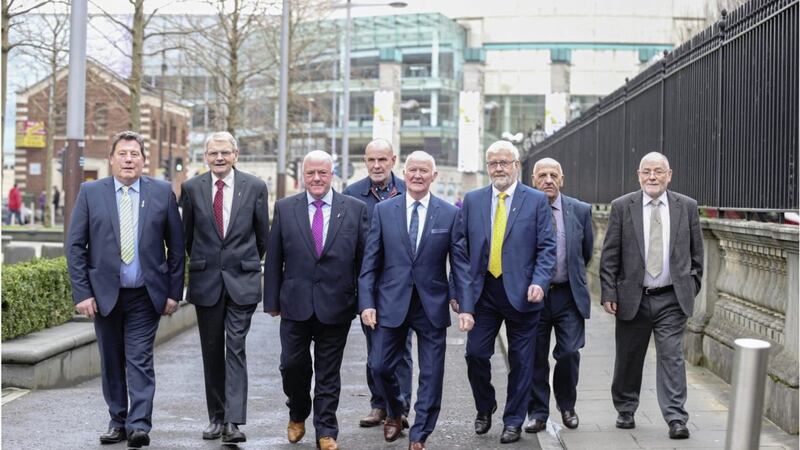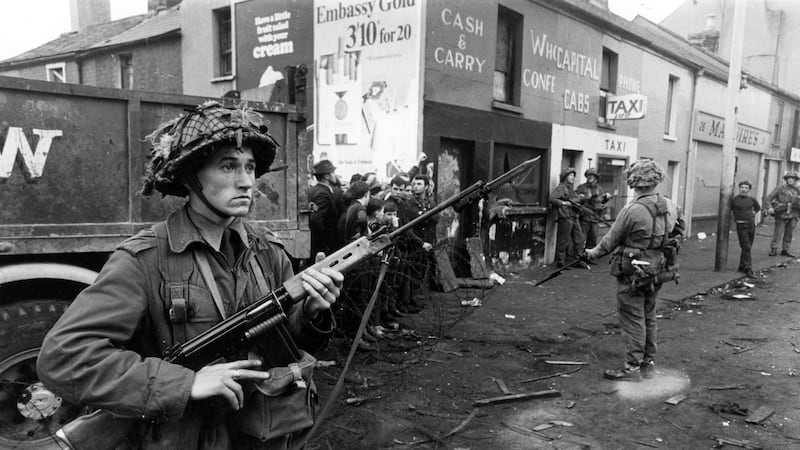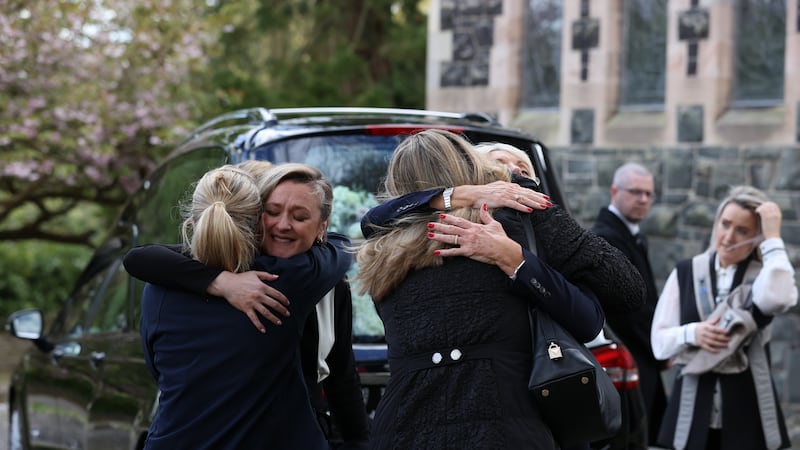Mention any of the following: Palace Barracks, Castlereagh, Gough Barracks, Strand Road, and people of a certain age will pause momentarily as they rustle the recesses of their mind and disturb settled memories.
For some, particularly former political prisoners, this will send shudders down their spine as a time, long past, and memories suppressed are brought to life.
For those who did not grace these places and for those who did they are places of notoriety – well known, feared places of detention.
Life was never the same again for the thousands of people coerced and interrogated there.
But memory is not the only repository of this infamy. You will find these places in the annals of Amnesty International, the European Court of Human Rights and eminent human rights organisations world-wide.
You will find mention of them in books, in plays, in poems, like Bobby Sands’ ‘The Crime of Castlereagh’.
Behind these barrack walls, torture was practised on defenceless people.
For those so treated there is no recompense. They carry the scars and the trauma.
And they do so in the knowledge that the world knows of Britain’s legacy of brutality.
Mention Ballykelly and the likely response, if known, is of a small village in a scenic setting close to Lough Foyle and Donegal’s Wild Atlantic Way.
Yet Ballykelly held a closely guarded secret, for nearly 50 years, where events which happened there in the late months of 1971 reverberated around the world then and in more recent times.
Ballykelly was at the centre of a top-secret clandestine enterprise that involved Ted Heath, then Britain’s prime minister, the commanding officers of the British army in Britain and in the north, Brian Faulkner, Ulster Unionist prime minister and the Joint Intelligence Committee – answerable to the British cabinet.
You might think the top-secret enterprise was Operation Demetrius - internment - but it was not.
This dastardly operation did not lend itself to the much-loved colourful military euphemisms of British generals.
It had no name.
But to those on the receiving end it was easily named – torture.
Ballykelly was the carefully chosen location for an experiment which would test the resolve and human endurance of 14 men, randomly selected, to be arrested and interned.
From this point onwards, these men would be known as ‘The Hooded Men’ – so called because throughout their prolonged days and nights of interrogation they were forced to wear a hood over their heads.
The late journalist and author, John McGuffin, wrote a book, ‘The Guinea Pigs’, about their harrowing experiences.
And human guinea pigs accurately sums up how these men were viewed by those who experimented on their minds and bodies in the torture chamber of Ballykelly and those in government and military who approved.
One of the Hooded Men, Liam Shannon, described to me last week what the men endured: “It was surreal. Time and life lost all meaning. Life’s normal routine disappeared into a blur of nothingness. Bizarre hallucinations created a frightening, fantasy world where nothing made sense, including life itself”.
In the midst of this maelstrom of disorientation the men were exposed to a high-pitched ‘white noise’ piercing every pore of their bodies and disassembling their nervous system; they were starved of food and water; denied use of the toilet, forced to stand spread-eagled against a wall, naked but for a loose boiler suit; exhausted and in despair, their captors routinely and savagely beat them and carried out mock executions.
Two separate and damning judgments by the European Commission, and Court of Human Rights found the British government guilty of ‘torture’ which was then finessed as ‘inhuman and degrading treatment’. But both are verdicts of shame.
The US and Israeli governments used the latter verdict to excuse the torture of Palestinian prisoners and detainees in Guantanamo Bay and in Abu Ghraib.
The truth about Ballykelly is now known. The truth about the British government’s direct involvement is now known. Both as a result of the accidental discovery of official documents by researchers.
The Irish government and Seanad are supporting the Hooded Men’s justice campaign which will soon find itself in a Belfast courtroom.
What went on in the now redundant torture chamber of Ballykelly has again come back to haunt the British as the ‘Hooded Men’ seek the names of their torturers.
Fifty years later, torturers are now on notice.








